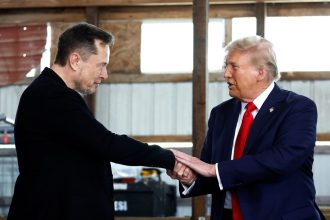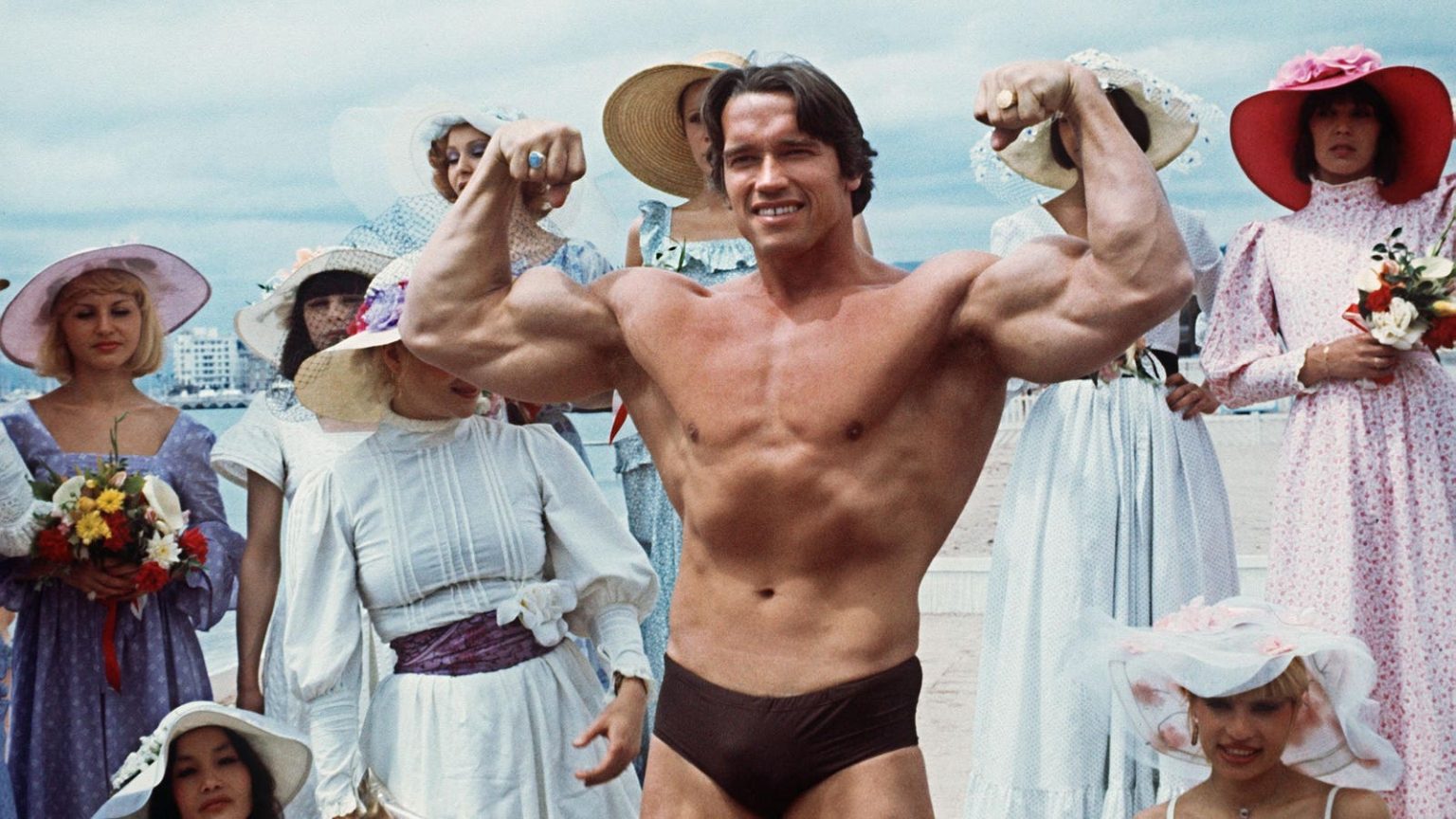It’s possible to learn a great deal about immigrants and immigration to America by examining Arnold Schwarzenegger’s immigrant success story. He came to the United States with less than-perfect English but, like many immigrants, he had an abundance of ambition and a willingness to work hard.
“America was as big as I’d always dreamed it would be one day growing up in rural Austria,” writes Arnold Schwarzenegger in his autobiography Total Recall: My Unbelievably True Life Story. “So, I didn’t have to fake my happiness and excitement when I played Hercules visiting Times Square in my first movie Hercules in New York.” (A new book gives his life lessons.)
Immigrants Are Risk Takers And Entrepreneurs
While his exploits in movies and bodybuilding are well-known, Arnold launched several entrepreneurial ventures soon after arriving in America. He sold a fitness newsletter through the mail, operated a patio construction business with fellow bodybuilder Franco Columbu and bought apartment buildings in southern California.
Such an entrepreneurial streak for an immigrant should not be surprising. According to the Ewing Marion Kauffman Foundation, immigrants are “almost twice as likely” as native-born Americans to become entrepreneurs. (Most billion-dollar startups have at least one immigrant founder, notes a National Foundation for American Policy study.) The number of immigrant entrepreneurs would be even higher if the United States had a startup visa that awarded permanent residence for founding a business and creating jobs.
The act of immigrating is itself entrepreneurial—taking a chance on a new life in a foreign land. Arnold Schwarzenegger was an entrepreneur during his childhood, selling ice cream near a lake during the summer in Austria in the 1950s.
Popular Culture Inspires People Around the World
Arnold describes two major popular culture influences from his childhood. First, the movie Hercules and the Captive Women, starring bodybuilder Reg Park, inspired a young Arnold to become “strong and muscular.” Second, his desire to become an action hero was sparked by American film star and fellow immigrant Johnny Weissmuller, who starred in a series of Tarzan movies Arnold watched growing up.
Immigrants Want to Learn English
Perhaps the most pernicious myth about immigrants is that they aren’t interested in learning English. The economic and cultural benefits of learning the English language are so evident that immigrants already have a great incentive to understand the language, and their children nearly universally master the language. That doesn’t mean it is easy, given the often-limited number of adult education classes and work and family obligations. However, analysts note that’s different from claiming immigrants don’t want to learn English.
Throughout Arnold Schwarzenegger’s autobiography, he expresses embarrassment, even shame, at not being able to speak English proficiently after arriving in the United States. He describes his work on his first film Hercules in New York: “The producers hired an acting coach and a dialogue coach, but two weeks with them couldn’t make up for my lack of English and lack of experience. . . . I couldn’t even understand all the sentences in the script.” He adds, “When they edited the film, they dubbed another actor’s voice over mine, because my accent was too thick for anybody to understand.”
Not long after arriving in America, Arnold signed up for English classes at a local community college. Yet as his time in the United States continued, the book details one embarrassing mistake after another caused by his inability to express himself well in English. “Becoming fluent in English was still the hardest thing on my to-do list,” he writes. He eventually found an accent removal coach, which helped him achieve his acting goals.
Sometimes An Immigrant Is the Right Person For The Job
An argument made by those opposed to immigration is that immigrants “take” jobs from natives. This makes little sense since no job is ever slated for any particular person. A vignette from Arnold’s book tells us there may be good reasons why a particular person, including an immigrant, may be the best person for a job.
When Arnold Schwarzenegger went in to discuss a job on the film The Terminator with Mike Medavoy, the head of Orion Pictures, he wasn’t even being considered for the role that became his most famous. The producers had a native-born American in mind for the job. “When I first saw the mock-up for The Terminator movie poster, the killer robot pictured was O.J. Simpson, not me,” writes Arnold. “’We’ve pretty much got O.J. Simpson signed up to be the Terminator, which is like a killing machine,’” he was told. Arnold was hired instead, and the rest is history.
Different Backgrounds Are Beneficial
Immigrants bring different perspectives to America. Arnold corralled the title role in The Terminator because he brought a unique background, as became clear in his interview with the movie’s director James Cameron. “I told him how the actor would have to prepare . . . In the army, we’d learned to field strip and reassemble our weapons by feel,” he writes. “They’d blindfold you and make you take apart a muddy machine gun, clean it, and put it back together. ‘That the kind of training he should,’ I said.”
Immigrants Often Need Help On Their Road To Success
Arnold Schwarzenegger describes the personal help he received from many people after he arrived in California as an immigrant. When he got into a car accident and didn’t know what to do, people at the gym intervened. After he moved into his first apartment, guys in the gym pitched in and brought him plates, silverware and other items. He said he never remembered people helping out like this in Germany or Austria. He also learned “American” manners from a girlfriend, whether it was proper table manners or sending thank-you notes after a dinner invitation. He credits professors, business associates and friends for helping him fit in and become an American.
Joe Weider, a fitness expert and entrepreneur in America, proved instrumental to Arnold’s career. Arnold already had success in international bodybuilding competitions, but Joe Weider thought he could go further. “’Don’t go back to Europe,’ Weider told Arnold after a U.S. competition early in his career. “He offered to pay my way to California and get me an apartment, a car and living expenses so that I could concentrate on training for an entire year.” Weider mentored Arnold in bodybuilding and business, taking him under his wing.
When Weider died in 2013, Arnold Schwarzenegger said, “Joe didn’t just inspire my earliest dreams; he made them come true the day he invited me to move to America to pursue my bodybuilding career. I will never forget his generosity. One of Joe’s greatest qualities is that he wasn’t just generous with his money; he freely gave of his time and expertise and became a father figure for me.”
The Most Motivated People Immigrate
Far from wanting to replicate the government in their old country, those who immigrate usually want more than what life offered them in their home country and want a better future for their children. Arnold developed views skeptical of the government’s role in economic affairs based on what he saw around him: “It was my reaction against having grown up in Europe, where the government was totally in charge of everything, and 70% of people worked for the government, and the highest aspiration was to get a government job,” he writes. “That was one of the reasons why I left for the United States.”
Immigrants Often Believe In America More Than Other Americans
Far from hating America, as at least one commentator has claimed, immigrants typically believe in America as much or even more than those born here. Native-born Americans were born here, something they had no control over. Americans by choice usually had to take action to become immigrants, note analysts.
In the movie Pumping Iron, Arnold Schwarzenegger said he always felt like America was where he wanted to live. Arnold summarizes his journey to becoming an American: “I came because the United States was the greatest country with the best opportunities, and now it was my home, I wanted to keep it that way and make it even better.”
Read the full article here





